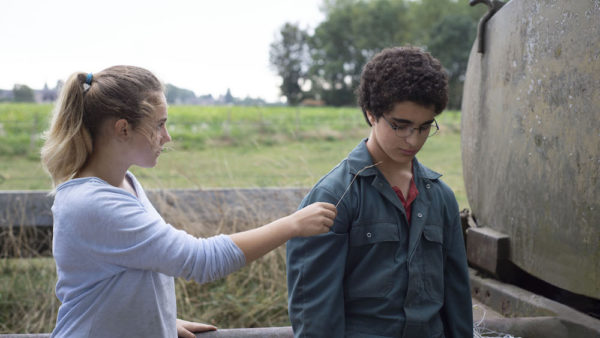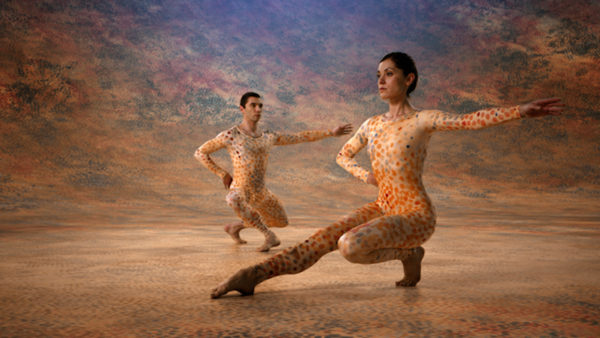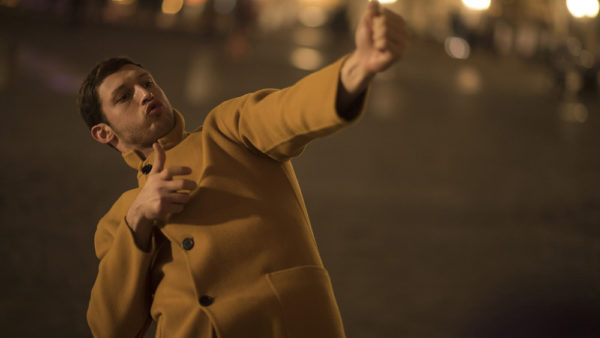Film Review: Rude, Crude, and Enchanting, This Year’s New York Film Festival is a Helluva Ride
By Erica Abeel
Three remarkable films that promise a bumper crop of world cinema yet to come at the NY Film Festival.

A scene from “Young Ahmed” — suffused with the the Dardenne Brothers’ trademark humanist empathy.
The 57th New York Film Festival (September 27 through October 13) kicked off its screenings for the press this week with three remarkable films that promise a bumper crop of world cinema yet to come in this tightly curated fest. The starting lineup also affirms the unquestionable power of watching films in a theater at a time when movie going is menaced by streaming, multiplying TV series, and all the screens competing for viewers’ attention.
In Young Ahmed the Belgian Dardenne Brothers pursue their project of taking a camera into the worlds of the marginalized and reviled. Their latest — which nabbed Best Director at Cannes — follows a Belgian-Arab Muslim teenager (first-timer Idir Ben Addi) who, to the distress of his European mother, has been radicalized by a magnetic local Imam. Ahmed becomes fixated on killing his female teacher in the name of his religious convictions. When his plot misfires, he’s packed off to a youth rehab center, remarkable for the kindness and civility of its counselors. Despite the respect they show his religious beliefs, they fail to make a dent in Ahmed’s secret determination, fueled by language from the Quran, to do violence to his teacher. Tracking an arduous journey toward remorse, as they did in La Promesse, Young Ahmed is almost unbearably sad — the Dardennes’ previous work tempered grimness with hope. Yet their portrait of Ahmed, and those trying to deter him from self-ruin, manages to be suffused with the filmmakers’ trademark humanist empathy.

A scene from “Cunningham 3D” — Summerspace sequence.
The documentary Cunningham 3D by Alla Kovgan solves in one blow the dilemma of how to capture the dancer in space: open it up with 3D. (Arts Fuse review) The result is a stunning visual journey into the evolution of the title’s innovative choreographer (Merce Cunningham) that taps into an added dimension to dramatize his artistic process. Among the indelible moments are sequences from Summerspace, enhanced by the golden dappled scrim by Robert Rauschenberg, that spirit you into an enchanted space. There are also scenes of a very young, faun-like Cunningham performing alone in his studio. The filmmakers also sketch in the ties between Cunningham, Rauschenberg, and mentor John Cage; they were apparently romantic as well as artistic partners. In Cunningham himself they capture something refreshing and rare in the current climate: the purity of an artist with no career plan or agenda beyond making dances.
Anchored by astonishing newcomer Tom Mercier — who was plucked from drama school for the role — the Israeli film Synonyms lands on you like a grenade. Rude, crude, with a WTF vibe, it’s so wildly unpredictable it makes Godard look timid. Mercier slaloms through the film with a kinetic energy rarely seen onscreen — no surprise that he’s also a dancer. The actor channels Yoav, a disillusioned young Israeli arrived in Paris determined to shed a national identity he’s come to despise and reinvent himself as a Frenchman. The film is partly based on director Nadav Lapid’s own past as an Israeli who moved to Paris and refused to speak Hebrew.
Yoav lands in an airbnb with no furniture in a posh building. As an opening salvo, Mercier goes full frontal and climbs into the bathtub. (From that point on, even dressed, Mercier looks naked.) To his dismay, Yoav finds someone has mysteriously made off with his clothes and other belongings. After frantically running around sans clothes, pounding on doors, he passes out in the bathtub. Fairy-tale style, a pampered young couple — Emile (Quentin Domaire) and Caroline (Louise Chevillotte) — find Yoav all but moribund in the tub. He literally, or metaphorically, springs back to life under the fur blanket in their bedroom. Emile gives him Euros and clothes, including a mustard-colored coat; in return Yoav can offer only his lip piercing — and, since Emile’s a writer, “my stories.”
At some point Yoav takes a job working for the Israeli Consulate. The aggressive style of the “tough Jew” is comically parodied, as two agents greet each other with a violent wrestling match. Persuaded that Paris is anti-Semitism Central, one agent rides the Metro shouting “I’m Jewish,” and harasses riders by singing the HaTikvah in their faces. An equal opportunity offender, Lapid also serves up French stereotypes in his portrait of Emile, twee and unlikely ever to finish his pretentious novel with the word “inertia” in the title, and infatuated with Yoav’s masculinity. Is the French couple just toying with Yoav? And that omnipresent ocher coat Emile gives him: suggestive of other shades of yellow in wartime Europe?

A scene from “Synonyms” — a romance about a man who loves a country that won’t love him back.
Yoav’s is no romantic postcard Paris. The frantic camera follows him with handheld traveling shots to ferocious sounds of traffic — Lapid has nailed how when the French drive, ils s’affolent. The director says he was inspired by the catchphrase of German expressionist painters — paint not the passing car but the feeling experienced as it passes; he tries to film “not views of Paris, but feelings experienced by Yoav walking in the city . . . looking for an authentic Paris.”
Anchoring the film’s wild digressions is Yoav’s obsession with the French language. He’s often nose deep in a dictionary, polishing his pronunciation (in fact, Mercier’s French is already very good indeed). Abrupt, impudent flashbacks disclose Yoav’s service in the Israeli military in mocking vignettes. He turns a shooting-range dummy into Swiss cheese by blasting his machine gun to the beat of Pink Martini’s “Je ne veux pas travailler.” When he’s awarded a silver medal, two female soldiers belt out the treacly song “Hallelujah La Olam.” The real wonder is that Israel’s Ministry of Culture helped fund a film that aims a Glock 17 at the nation’s military culture, especially considering the government campaign mounted against the anti-military film Foxtrot.
Other through lines include Yoav’s longtime fixation on Hector of Troy, who was trounced, you will remember, by Achilles. His love for Hector is a telling provocation — in a nation where losing is taboo. Yoav’s French immersion course reaches a breaking point when, desperate for money, he falls afoul of a pornographic photographer — another dig at supposed French decadence. Yoav, objectified, is asked to penetrate himself and yell obscenities in Hebrew. Usually the camera careens from one episode to the next; here it stays put, which will most likely prompt walkouts from those who haven’t fled already. Yet the scene is revelatory: Yoav is brutally confronted by the disconnect between his French identity fantasy and real life. At bottom, Synonyms is a romance about a man who loves a country that won’t love him back. It’s a helluva ride.
Erica Abeel is a novelist, film and cultural critic, and former professor at CUNY. Her recent novel Wild Girls, about three women rebels of the 50s, was an Oprah Magazine pick. Her journalism has appeared in the New York Times, Indiewire, and other major sites and national publications. A former dancer, when not writing, she’s in a Pilates class or at the barre.
Tagged: Alla Kovgan, Cunningham 3D, Dardenne Brothers, Erica Abeel, Nadav Lapid, New York Film Festival, Synonyms

Wonderful article! Saw the trailer for “Cunningham”–just exquisite! And exquisite costumes!!